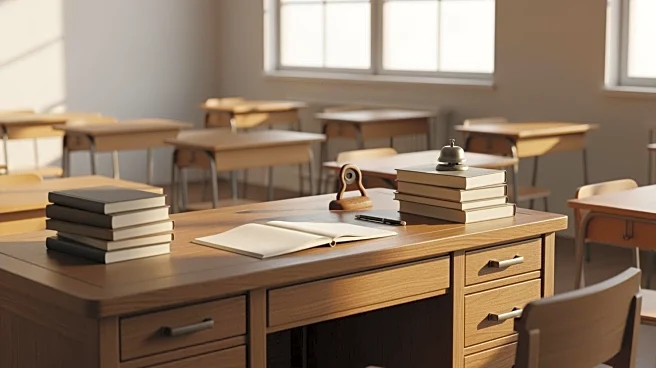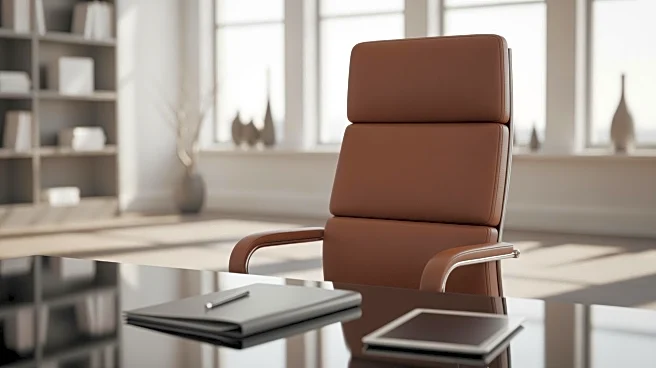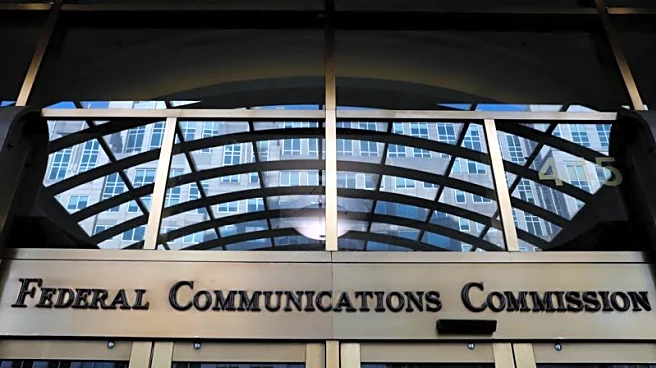What's Happening?
A study conducted by researchers at Kennesaw State University has revealed that a cellphone ban in the Marietta City school district in Georgia has positively impacted teacher well-being and classroom management. The study, which is in its preliminary
stages, surveyed teachers from two middle schools in the district after the first year of the ban. The findings indicate that 90% of teachers felt the ban helped them manage their classrooms better and build stronger connections with students. Additionally, 85% reported improved well-being, feeling less stressed and more supported in their jobs. The ban requires middle school students to keep their smartphones and smartwatches locked in Yondr pouches during the school day, with exceptions for documented medical conditions. This policy aligns with a new Georgia law mandating similar restrictions for students in kindergarten through 8th grade by July 2026.
Why It's Important?
The implementation of cellphone bans in schools is gaining traction as a strategy to enhance teacher satisfaction and retention. Teachers have expressed concerns about the distractions caused by smartphones, which affect student engagement and classroom dynamics. By reducing these distractions, teachers can focus more on teaching and fostering meaningful interactions with students. The positive feedback from teachers in the Marietta City school district suggests that such policies could be beneficial in addressing teacher burnout, a significant issue in the education sector. As more states consider similar measures, the potential for improved educational outcomes and teacher retention becomes increasingly relevant.
What's Next?
The researchers plan to continue their study by conducting qualitative interviews and another survey in May 2026 to further assess the impact of the cellphone ban. As the Georgia law takes effect, other school districts may observe the outcomes in Marietta and consider implementing similar policies. The ongoing research will provide valuable insights into the effectiveness of cellphone bans and their role in improving teacher and student experiences. Stakeholders, including educators and policymakers, will likely monitor these developments to inform future decisions on educational policies.
Beyond the Headlines
While cellphone bans show promise in improving teacher well-being, they also present challenges. Some teachers have reported logistical issues when enforcing the bans without adequate support from school administrators. Inconsistent enforcement and unclear disciplinary measures can undermine the effectiveness of these policies. Additionally, early findings from other districts indicate potential negative consequences, such as increased suspensions, which disproportionately affect minority students. These complexities highlight the need for comprehensive strategies that address both teacher and student needs while minimizing unintended consequences.
















